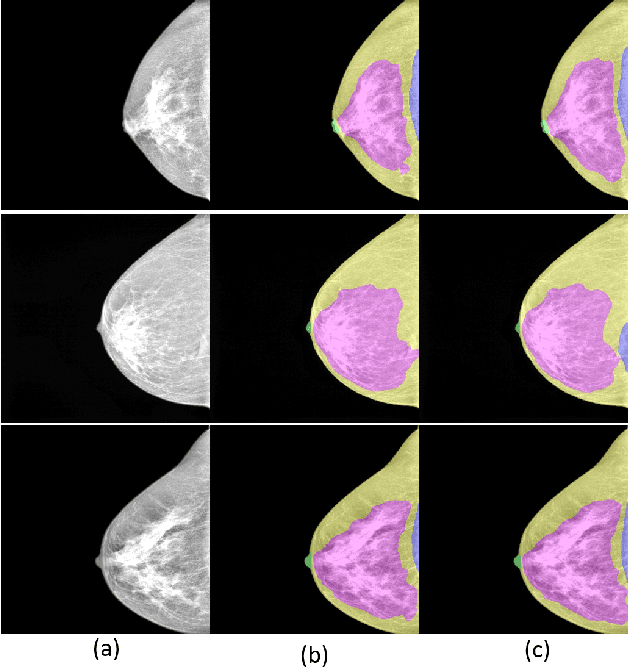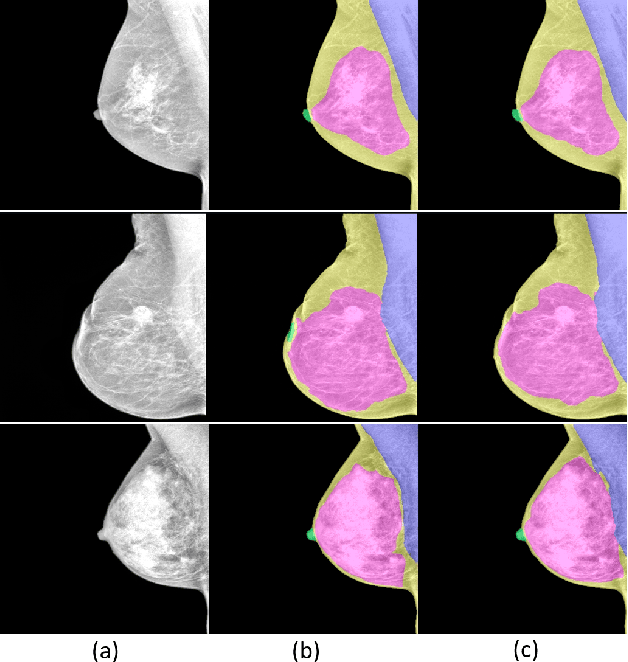Cesar A. Sierra-Franco
Improving the generalization of deep learning models in the segmentation of mammography images
Mar 28, 2025



Abstract:Mammography stands as the main screening method for detecting breast cancer early, enhancing treatment success rates. The segmentation of landmark structures in mammography images can aid the medical assessment in the evaluation of cancer risk and the image acquisition adequacy. We introduce a series of data-centric strategies aimed at enriching the training data for deep learning-based segmentation of landmark structures. Our approach involves augmenting the training samples through annotation-guided image intensity manipulation and style transfer to achieve better generalization than standard training procedures. These augmentations are applied in a balanced manner to ensure the model learns to process a diverse range of images generated by different vendor equipments while retaining its efficacy on the original data. We present extensive numerical and visual results that demonstrate the superior generalization capabilities of our methods when compared to the standard training. For this evaluation, we consider a large dataset that includes mammography images generated by different vendor equipments. Further, we present complementary results that show both the strengths and limitations of our methods across various scenarios. The accuracy and robustness demonstrated in the experiments suggest that our method is well-suited for integration into clinical practice.
Towards Automated Semantic Segmentation in Mammography Images
Jul 18, 2023



Abstract:Mammography images are widely used to detect non-palpable breast lesions or nodules, preventing cancer and providing the opportunity to plan interventions when necessary. The identification of some structures of interest is essential to make a diagnosis and evaluate image adequacy. Thus, computer-aided detection systems can be helpful in assisting medical interpretation by automatically segmenting these landmark structures. In this paper, we propose a deep learning-based framework for the segmentation of the nipple, the pectoral muscle, the fibroglandular tissue, and the fatty tissue on standard-view mammography images. We introduce a large private segmentation dataset and extensive experiments considering different deep-learning model architectures. Our experiments demonstrate accurate segmentation performance on variate and challenging cases, showing that this framework can be integrated into clinical practice.
 Add to Chrome
Add to Chrome Add to Firefox
Add to Firefox Add to Edge
Add to Edge